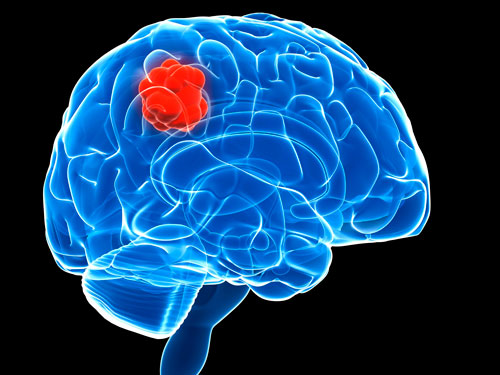![Researchers have discovered the mechanism causing immune cells to become suddenly lethargic and ineffective when they come close to neuroblastoma tumors. [iStock/Ingram_Publishing]](https://genengnews.com/wp-content/uploads/2018/08/August3_2015_iStock_000018235224_BrainCancer_NeuroblastomaWeapon_GNH2795153124-1.jpg)
Researchers have discovered the mechanism causing immune cells to become suddenly lethargic and ineffective when they come close to neuroblastoma tumors. [iStock/Ingram_Publishing]
Immune cells do their best to mount an efficient offensive campaign against menacing tumors, but much like soldiers barricaded within a stronghold, cancer cells deploy numerous weapons to keep immune cells from breaching the defenses.
Now, scientists funded by Cancer Research UK (CRUK), have discovered that neuroblastoma cells produce an enzyme that depletes a critical energy source for immune cells that are trying to attack the tumor.
The investigators found that the neuroblastoma cells produced an abundance of the enzyme arginase II, which created a microenvironment that was immunosuppressive since the enzyme’s target, arginine, is a critical protein building block and an essential energy source for immune cells
“We've known for a while that harnessing the power of the immune system could be an effective way to treat neuroblastoma,” explained lead author Francis Mussai, M.D., Ph.D., clinical senior lecturer in pediatric oncology at the Birmingham Children’s Hospital, UK “But we didn't know why the immune cells were having such difficulty recognizing and destroying the tumor. Armed with this new knowledge about the role of arginine, we may be able to activate the immune system to attack cancer cells.”
The findings from this study were published recently in Cancer Research through an article entitled “Neuroblastoma Arginase Activity Creates an Immunosuppressive Microenvironment that Impairs Autologous and Engineered Immunity.”
Neuroblastomas are the most common extracranial tumor in children and even with newly developed immunotherapy drugs, survival rates still remain poor, especially for those with advanced disease.
Previously, researchers noticed that neuroblastoma cells have a molecule on their surface that differentiates them from healthy cells, leading to the hope that the immune system might be persuaded to recognize and destroy them. The current study, however, may explain why initial attempts to harness the immune system in this way have so far been unsuccessful.
“Now the challenge is to develop new drugs which stop neuroblastoma from using arginine, and may make immune therapy more effective,” noted senior author Carmela De Santo, Ph.D., CRUK new investigator fellow at the University of Birmingham.
Specifically, the CRUK scientists saw that neuroblastomas from both mouse and human were able to suppress T-cells through increased arginase activity. Furthermore, the team observed that the arginase activity inhibited myeloid cell activation and suppressed bone marrow CD34+ progenitor proliferation. Clinically, they noted that high arginase II expression correlated with poor survival for neuroblastoma patients
“These findings could have huge implications for treating neuroblastoma. Better understanding the role of arginine could help us to boost the body's immune cells and we hope this could lead to more effective treatments,” stated Eleanor Barrie, senior science information manager at CRUK. “We recently launched Cancer Research UK Kids and Teens as part of our commitment to bringing forward the day when no young lives are lost to cancer. Our target is to find more cures and kinder treatments for children with the disease so that, in the future, every child with cancer can go on to live a long and healthy life.”


